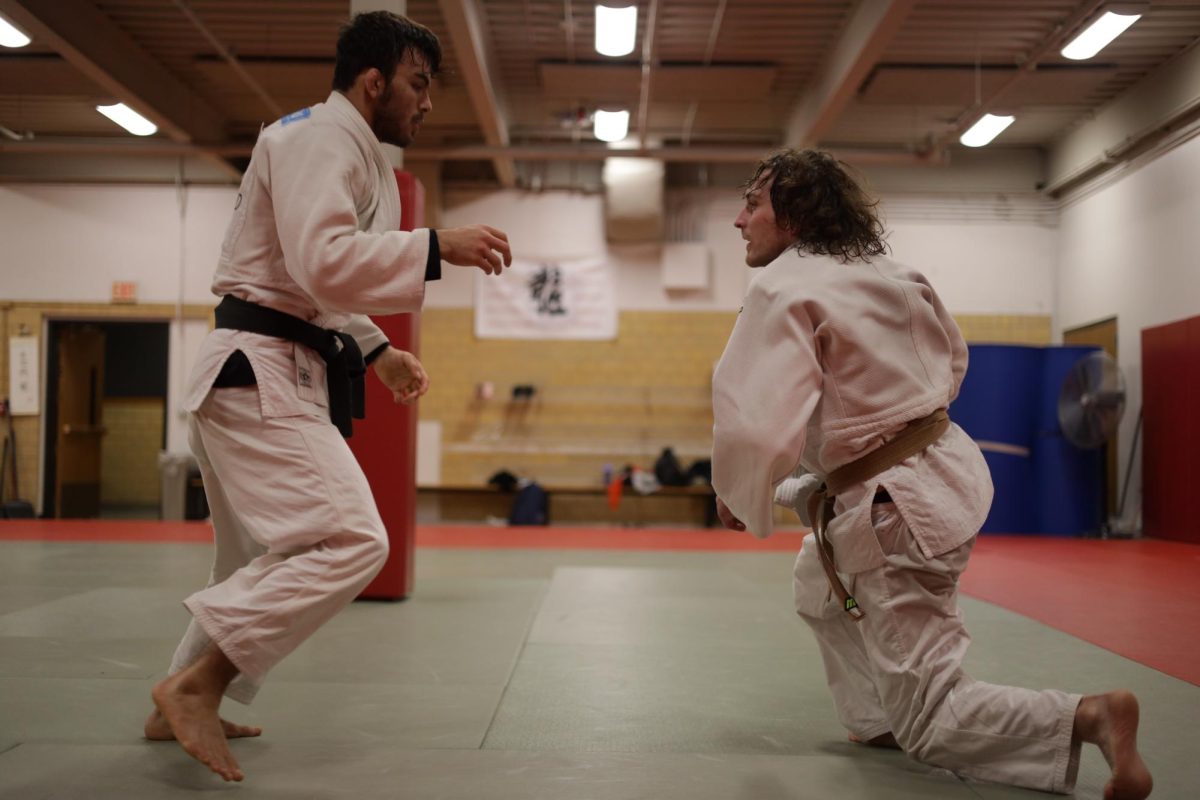Busy cast of ‘The Music Man’ balances work and play
March 10, 1998
“Now, we won’t need Marion and Harold in this,” Stars Over Veishea director and choreographer Marge Bennett Folger said during last Thursday’s rehearsal. “You know that you will have to do some work later.
“Now, I need my men shoulder to shoulder and my women — one, two three, four, five, six.”
And so goes rehearsal for “The Music Man,” this year’s SOV musical.
The cast of 30 to 40 Iowa State students and 10 community children has been learning new music, memorizing lines and working through blocking for several weeks now.
“Rehearsal has been pretty productive,” Kent Hartwig, freshman in political science, said. “The cast is pretty talented.”
Hartwig, who plays Harold Hill, “the music man,” describes Hill as a man who “makes his living off of swindling small towns into buying things that don’t exist. He also tries to find the pretty girl in every town.”
In this small Iowa town, Hill is trying to sell the townspeople instruments for their children with the promise that he will teach them how to play.
The catch is that Hill himself doesn’t know how to make music, and some of the townspeople become skeptical of his intentions, including Marion, the librarian.
“Marion is refined and looks down on other people,” Meredith Lips, junior in meteorology who plays Marion, said. “It’s also kinda of big deal that she’s not married yet.
“When Harold Hill comes to town, she is skeptical of him until she sees how he acts towards her little brother, and what a difference he has made in his life. Then she falls in love with him.”
Marion, however, is not the only one questioning Hill’s motives.
Mayor Shinn, played by Aaron Schmidt, junior in computer engineering and performing arts, watches Hill’s every move.
“[Mayor Shinn] is a very proud and somewhat big-headed guy. He’s in charge of the town, and he knows it,” Schmidt said. “He’s skeptical of Harry and is constantly after his credentials and eventually gets pulled into it.”
As Mayor Shinn is on the fine-line of whether or not to trust Hill, the music man almost sells him a band instrument for his son. It almost works — that is until the Mayor remembers he doesn’t have a son.
Although those involved agree that rehearsals have been going well, there are several challenges, including music, choreography and developing the mindset for this time piece.
Another challenge is balancing rehearsal with classwork. The cast rehearses five days a week for three hours at a time.
“The hardest part is to adjust my scheduling,” Schmidt said. “But it’s worth it to do it.”
“A lot of people think it’s a lot of work, but I really enjoy it,” Lips said.
An intense rehearsal schedule also helps to calm the performers nerves.
“The more blocking and solidifying of scenes puts me more at ease,” Lips said. “Sometimes when I think about it [the final performance], I get nervous, but, by the time we have to do it, I will be able to do it automatically.”
As director and choreographer, Bennett-Folger faces a different set of challenges.
“I really like the cast a lot. I like the people and the talent,” Bennett-Folger said. “They are all working very hard, but it’s a lot to handle when you’re working with 40 people.
“One of the biggest challenges is keeping people on task and keeping everyone quiet while I’m talking,” she continued. “You have to keep the balance of fun and work, but this is always a challenge. I have to create the images of blocking and dancing from my mind through their bodies.”
“The key is that there are so many talented people on the cast with so much to offer,” Kee Keeler, sophomore in English and the town banker, said. “Being a part of [“The Music Man”] can be frustrating, but a humbling experience.”






